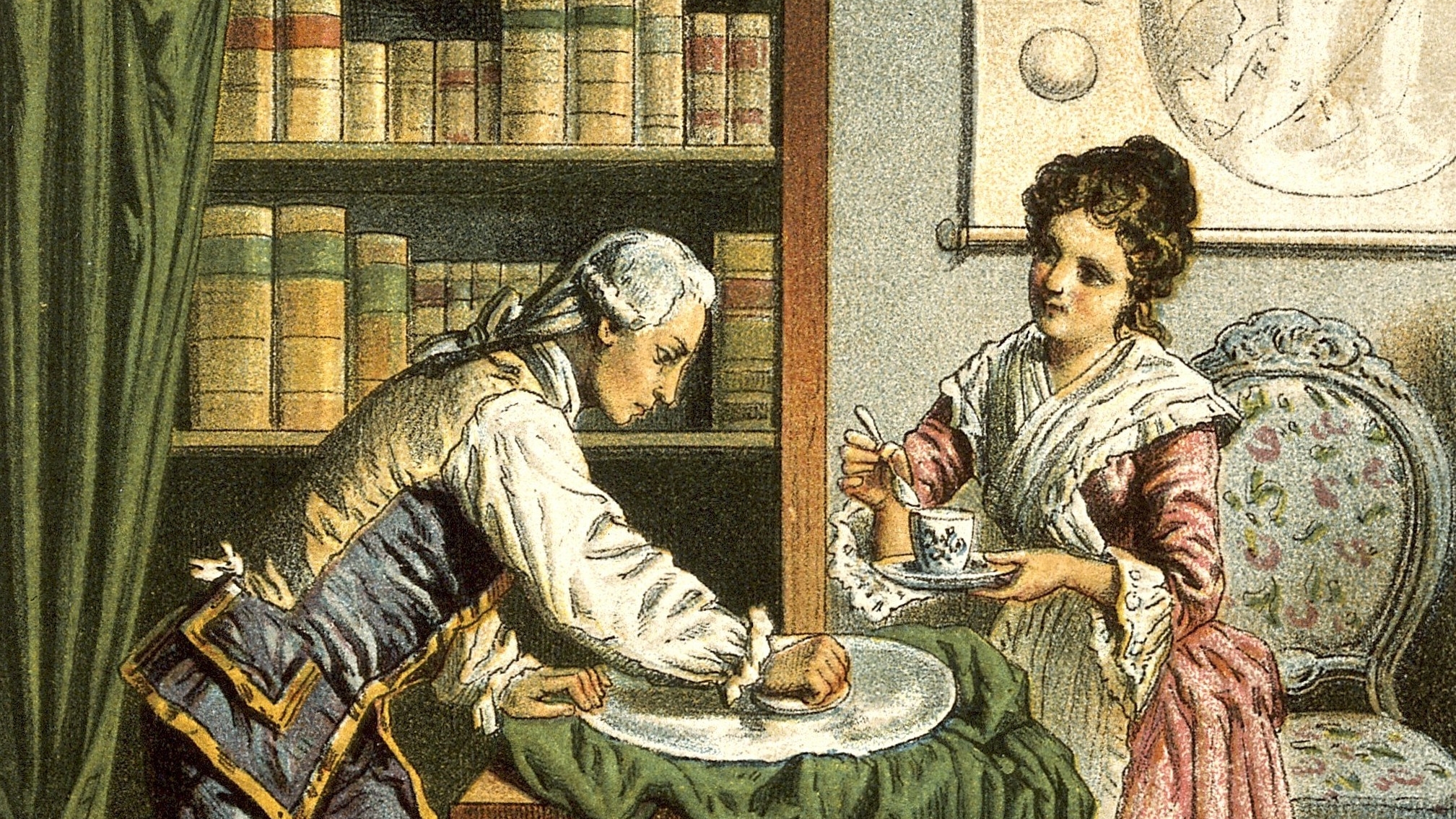Science and Romanticism
It is kind of a cliche that the Romantics disliked science, because it drained the enchantment from everything.
This was never really true, though William Blake did not particularly care for Newton, or for physics. Newton was eccentric and unmanageable in a completely different way than Blake was eccentric and unmanageable, and you know how much unmatching eccentrics despise each other, because of the way their finials and iridescent wings bang against each other. But aside from uncaring quiddity of Newton himself, Blake hated and feared a mechanistic universe, nothing but billiard ball atoms banging against each other.
William and Caroline Herschel, though I suspect mirror grinding and tea drinking really don’t mix
But Blake is a bad example. Everyone in his own time thought he was weird, and he became a Romantic only retrospectively, within the calm quads of Academe, long after he was around to object to his ivied imprisonment.
The actual celebrities of the Romantic era were intelligent men and women, and such are always fascinated by discovery, and that was the time of great discovery. The only small-r romantics that say they dislike science are actually obscurantists who are too lazy to reconsider poorly thought-through hypotheses about the world around us. Many people think something dumb and defend it by saying it is romantic, or mysterious, or inspiring. We don't hang out with those people, and, since their opinions are more or less random, we don't need to dispute with them.
In The Age of Wonder the noted biographer of Romantics, Richard Holmes, tells a huge number of entertaining stories about the botanist Joseph Banks, the astronomer William Herschel and his talented and devoted little sister Caroline (literally little, a sprite of less than five feet tall), the solitary and determined explorer Mungo Park, the chemist Humphry Davy and his brilliant assistant, successor, and eventual competitor, the eccentric William Faraday, and William Herschel's son John Herschel, among many others.
Beauty and Terror
The subtitle of the book is "How the Romantic Generation Discovered the Beauty and Terror of Science", and Holmes, a literary biographer rather than a science writer, gives a great sense of that, of personality, ambition, eccentricity, and obsession.
Everyone is more or less tied together through Joseph Banks. After his early adventures in the South Seas he became a kind of impresario of science, identifying and promoting talent, finding funding, providing opportunities, and being a fan and cheerleader.
A Bad Scientific Holiday
Aside from the comet-spotting Caroline Herschel, whom I got kind of a crush on, my favorite characters were Humphry Davy, his beautiful socialite wife Jane, and the awkward working-class genius Faraday. They took an ill-fated trip through Europe together which could serve as the basis for a novel. These three vivid characters, none of whom ever understood either of the others, each had a long history. Oddly, there are images available of all these characters save the beautiful Jane, which also seems to be part of a story.
I actually listened to an audio version of it, which was wonderful, though it missed the great photographs in the actual book.
Anyway, I highly recommend the book, not as an antidote to any misapprehensions anyone might have about science and Romanticism, but as a great account of the scientific passions of a fascinating generation.
Do you think that science is unromantic?
And do you have an entertaining anecdote of someone's misbehavior that led you to think that?
